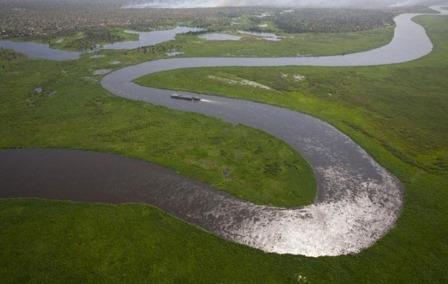Dredging River Naam without environmental impact assessment “illegal”: minister
June 9, 2022 (JUBA) – South Sudan’s Water Resources and Irrigation minister, Josephine Napwon said dredging River Naam of its aquatic vegetation without first carrying out an environmental impact assessment is “illegal”.
Speaking to reporters in the capital, Juba on Wednesday, Napwon said her ministry had not yet notified the ministry of environment of the new project.
“We in the ministry are not aware of this development. We saw the equipment on social media, but did not even know what the equipment is meant for until we saw it is for the dredging of the Nile,” she explained.
River Naam is one of the tributaries of the Nile flowing from Bahr El Ghazal via northern Unity State.
In a statement issued on Wednesday, South Sudan’s Unity State Physical Infrastructure, Lands and Public Utilities minister, Lam Tungwar Kueiwong, confirmed the arrival of machinery from Egypt to dredge and open River Naam.
The minister described the project as a “blessing”, adding that it was an initiative undertaken by the national Ministry of Water Resources and Irrigation in Juba.
“The project is under the ministry of water and irrigation of the national government in Juba and we, the state, are just beneficiaries because we have had flooding so we are the ones being rescued,” Kweiwong said in the statement.
He added, “We do not know when it (work) will start but we have already received the machines based on the directives from the national government.”
According to the minister, they are the people on the ground, but the original owners of the project are the national Ministry of Water Resources and irrigation.
Kweiwong further castigated individual who are opposed to the new project, stressing that River Naam will be opened as soon as the machinery is assembled.
“We have received the machines but I am seeing a lot of things going on in the media including from Professor John Akec and the rest of the people,” he said, adding, “I think all is being misunderstood. It is not Jonglei Canal. These are people with a specific problem within their own locality who want to see how the water can be directed because the whole area has been submerged by water.”
Separately, the presidency spokesperson, Ateny Wek Ateny, said President Salva Kiir was neither aware of the arrival of dredging machines nor the whole project.
“The government has not given any approval yet on clearing Nile waters or clearing the plants that are inside the Nile. We have not yet been told about those machines completely,” Ateny told Eye Radio on Wednesday.
He added, “The government wanted to know from experts the ecological impact of clearing the Nile because livelihoods depend very much on the swamps.”
Ateny said South Sudan government has invited eminent foreign and local scholars and experts to debate and offer their opinions on the subject matter.
“The government of South Sudan is responsible and always does things after studies and it cannot do things without studies that show the benefit will not outwit the negative impact,” he said, adding, “Any decision about the Nile waters will be a collective decision and will not be a unilateral decision by the government.”
In recent months, debates over dredging of the Nile tributaries and the proposed resumption of the digging Jonglei canal have been rampant, with officials either denying knowledge of the arrival of dredging machines while other confirmed it.
Mading Gum, a legal expert, said dredging is not a remedy to floods in Unity State.
“There is also no scientific evidence that a build-up of sand in the river causes flooding or dredging will prevent future flooding. In climate change attribution studies, climate experts use observational data and simulations of climate change models, which have shown that human activities like carbon emission are responsible for extreme weather events like droughts and floods,” he remarked.
The lawyer said South Sudan government should make public the environmental and social impact assessment (ESIA) report. ESIA is a mandatory requirement before any import of dredging equipment or commencement of any activity.
(ST)

